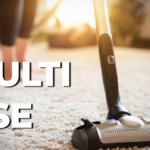
There are a variety of apps and sites available these days that can help you fill your prescriptions—and even get you prescriptions for things like birth control or some antibiotics. They’re convenient, cost- and time-effective, and easy to use—but are they totally on the up-and-up?
What can you expect from online pharmacies?
You’ve definitely heard of one, whether you realized it or not. There are Hims and Hers, two distinct online brands under the same company, which provide, respectively, things like treatments for erectile dysfunction and hair loss or birth control. They also offer medication for depression and anxiety, skin, and more. Nurx is known for birth control; Wisp is there for you if you think you have a urinary tract infection or bacterial vaginosis; and Blue Chew also provides meds for erectile dysfunction. Bicycle Health and WorkIt Health are among those offering medication treatment for substance use disorders, where available.
With these services, you log on and, in most cases, communicate with a licensed provider right there on your phone. If they give you a prescription, it may be sent to your pharmacy, or even directly to you. In short, the need for a trip to a doctor, time in a waiting room, face-to-face interaction, and maybe even a journey to a pharmacy are eradicated. The convenience afforded here is truly astronomical, especially if you’re trying to keep your medical acquisitions especially discreet.
What are the drawbacks?
The Food and Drug Administration has dedicated a whole campaign to consumer education around online pharmacies, for a sense of how big these things have gotten. The first thing you should do if considering using one of these services is check the FDA directory, locate your state, and make sure it’s licensed. If it’s listed and you want to proceed, check that it requires a doctor’s prescription, provides an address and phone number in the U.S., and staffs a licensed pharmacist who can answer any questions you have.
Per the FDA, there are a few signs you should stay away from certain online pharmacies. Don’t use it if it meets any of these criteria:
- It doesn’t require a doctor’s prescription.
- It’s not licensed in the U.S. and by your state board of pharmacy.
- It does not have a licensed pharmacist available to answer questions.
- It sends medicine that looks different than what you get at your local pharmacy.
- It sends medication that comes in broken or damaged packaging, in packaging written in a foreign language, has no expiration date, or is expired.
- It has prices that “seem too good to be true.”
- It charges you for products you didn’t order or receive.
- It does not provide clear written protections of your personal and financial information.
The websites for each telehealth company and associated pharmacy should be clear about whether they’re above board. For instance, Wisp advertises that its medical staff and pharmacies are certified to practices in all 50 states. Still, check independently to be sure. Saving a little money on a prescription isn’t worth getting counterfeit or expired medication.
Some online pharmacies exist without the telehealth component, too, like Capsule or Mark Cuban Cost Plus Drug Co. Always independently verify that your pharmacy is able to operate in your state and is complying with all laws.
Credit: Source link



